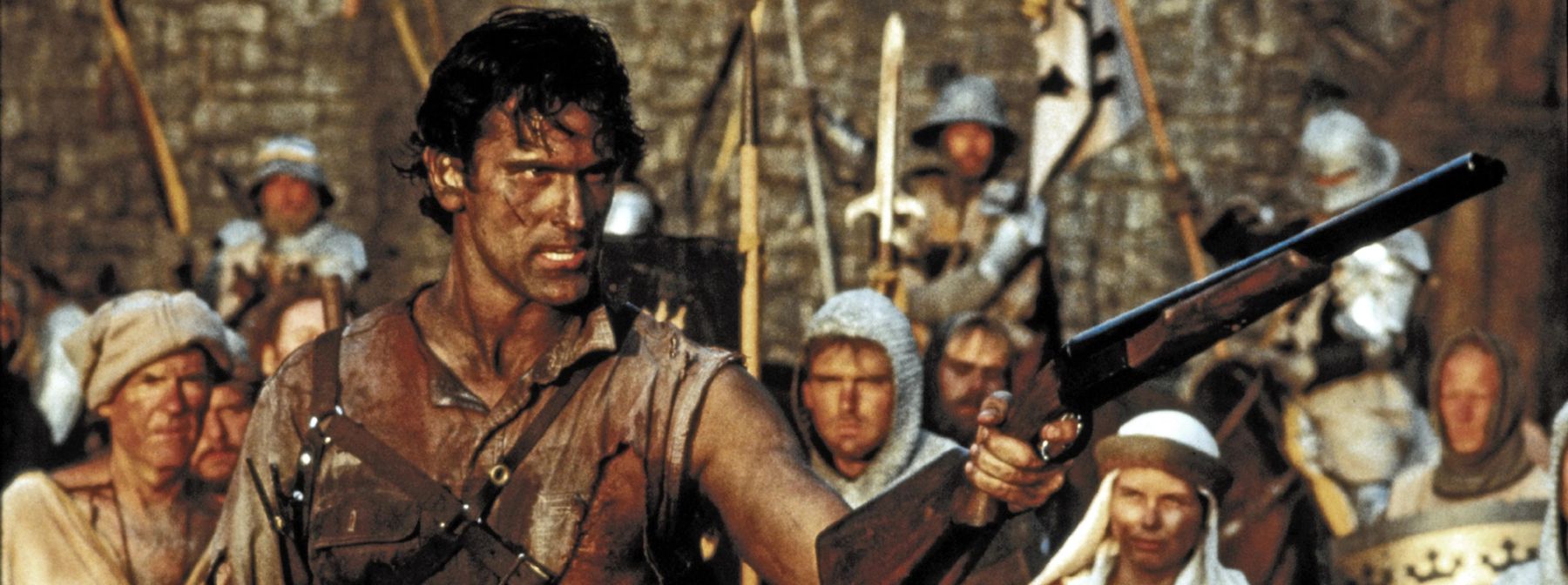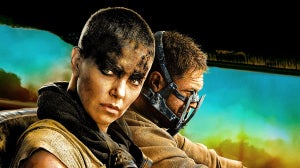
In fact, during the editing process many of the more sombre sequences of Ash (Bruce Campbell) lamenting the loss of the friends he wasn't able to save ended up on the cutting room floor.
This entire first film is retconned within the opening five minutes of the joyous Evil Dead II, which transforms the blood-fueled carnage into something far closer to a live-action Looney Tunes cartoon, with Campbell channeling the likes of Buster Keaton in his go-for-broke physical comedy.
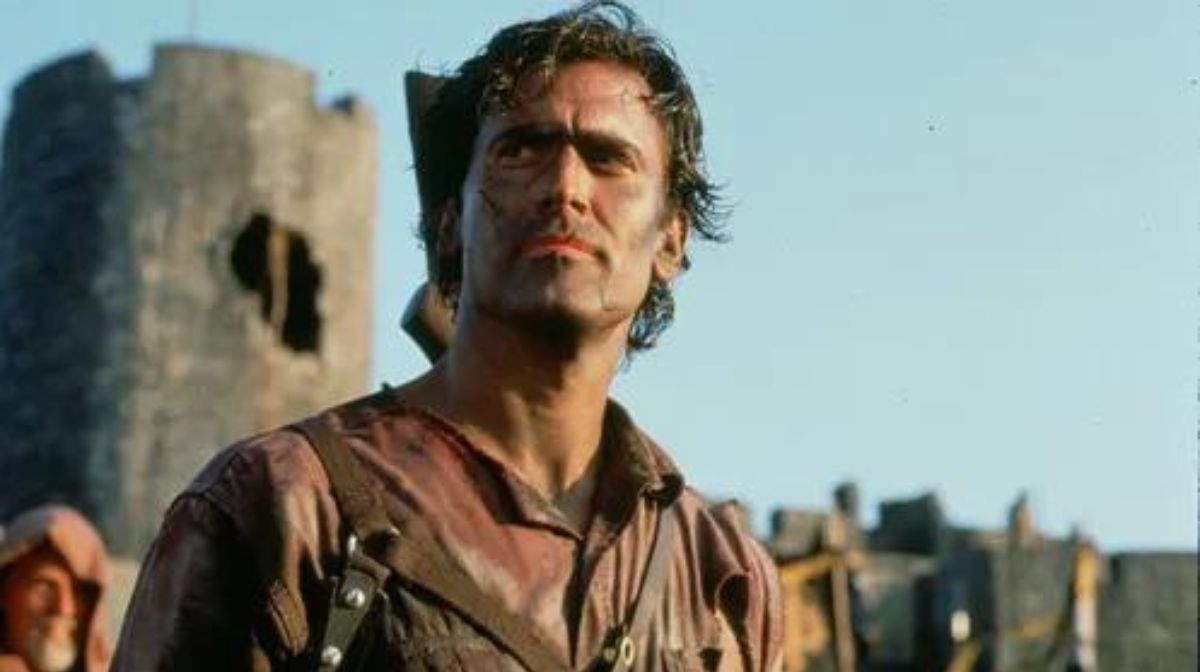
Despite the high body count and increased gore, the focus on the laughs in this sequel makes it that rare thing: a feel-good horror movie. It couldn't be further from Raimi's initial conception of its predecessor.
Evil Dead II ends with Ash getting thrown back in time, where he's worshipped as a deity after falling from the sky, chainsaw still strapped to his hand.
Army Of Darkness, the third entry in the series which arrived in US theaters 30 years ago this week, opens with the reveal that this was short-lived, although his reluctant journey into becoming a hero offered Campbell's character his biggest transformation yet.
The Changing Face Of Ash Williams
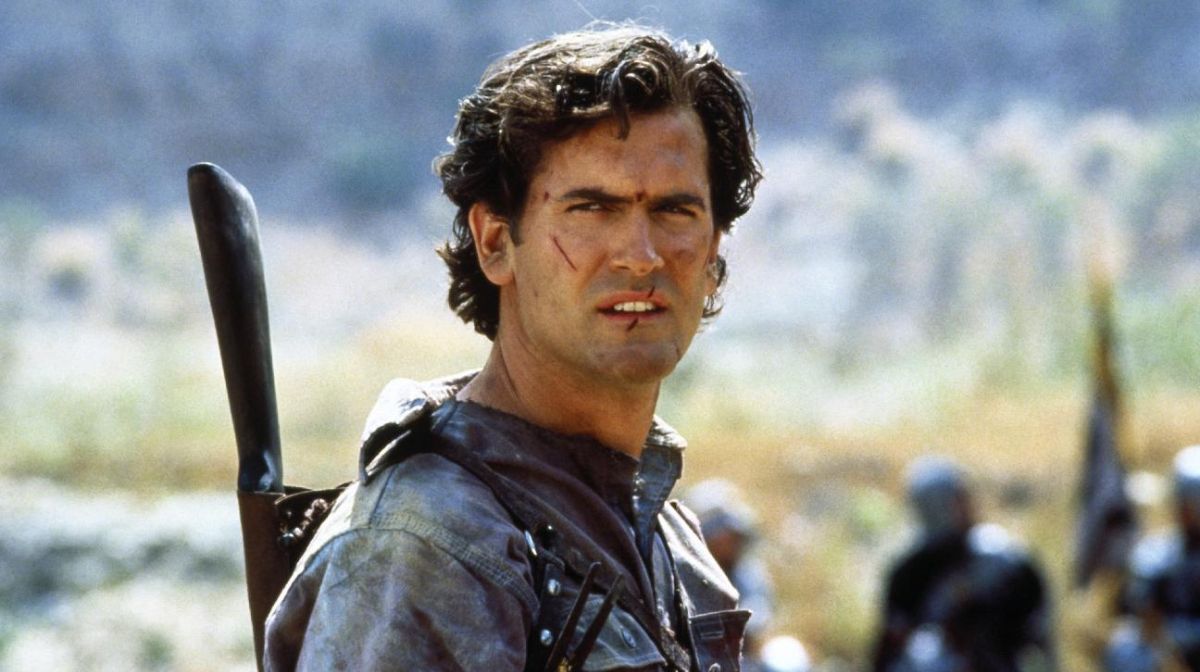
In the 1981 original, Ash Williams was conceived as an everyman who was in over his head at every turn. Even before the Deadites are awoken after a late-night reading of the Necronomicon, Ash is shown to be far more cowardly than how he is subsequently depicted.
Just look at his silent shock on the drive to the cabin, as the bridge leading there starts to fall apart beneath him.
This feels integral to the character's growth in the movie, as Ash becomes increasingly saddened by not being able to avenge the deaths of his friends - only for him to be killed at the end of the film.
As Raimi has often pointed out, the character is named "Ash" because that's all he was going to end up as by the time the credits rolled.
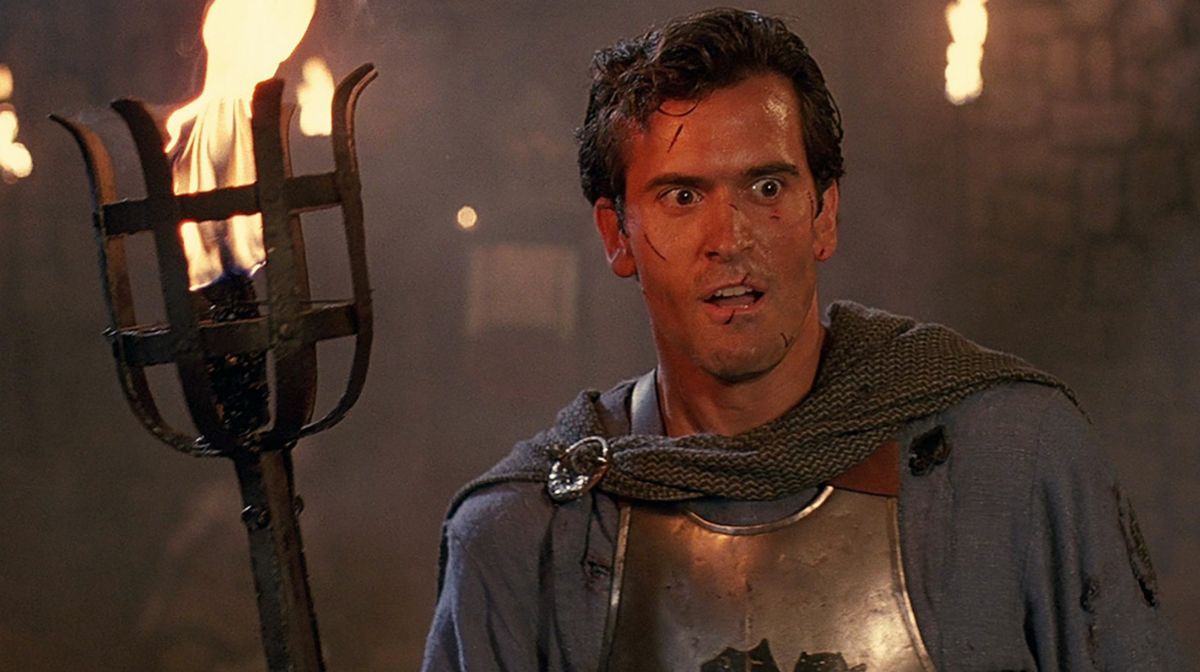
The sequel switches his fate up considerably, reimagining his trip to the cabin as a romantic getaway to propose to Linda, only for her to be killed and possessed shortly after arriving.
Initially Ash's response to the emerging threat is equally cowardly - look at that single-take POV shot of him running away across the entire house - but he eventually steps up to the plate.
Campbell has repeatedly joked that Ash is a "bad slow-thinker and a good fast-thinker", with fighting the Deadites being the only thing he's remotely competent at. But even in Evil Dead II, Ash feels far from the typical action hero, even as he comes to embody that role, right down to the deadpan quips ("groovy").
His initial fear when he arrives in the Middle Ages seems at first like a step back for the character - but Army Of Darkness makes it clear that his evolution into a conventional hero is far from complete.
Ash Vs. The Medieval Dead
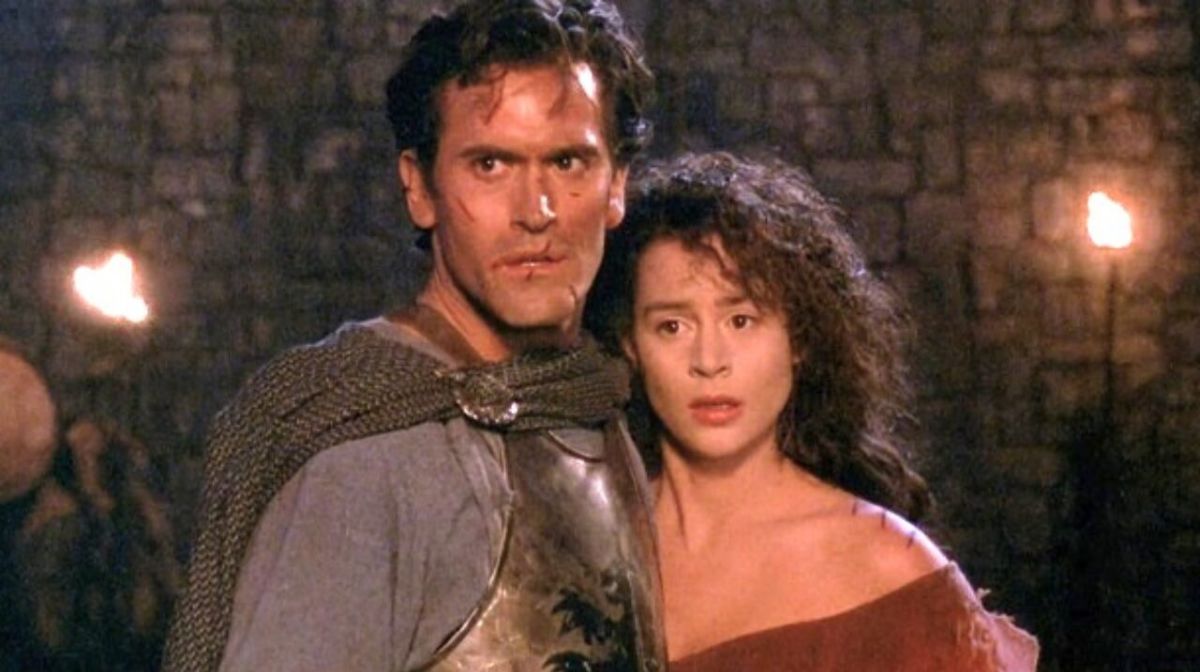
Ever so slightly changing the ending from Evil Dead II, our re-introduction to Ash in Army Of Darkness sees him being led towards Lord Arthur's castle, suspected to be a spy.
His terror and desperation to flee the scene is immediately apparent, especially when he's about to get thrown into a pit with an unseen creature that tore the previous prisoner limb from limb.
This all changes once Ash proves himself worthy of hand-to-hand combat with a Deadite - when his chainsaw hand is thrown back down into the pit, he easily wins the match.
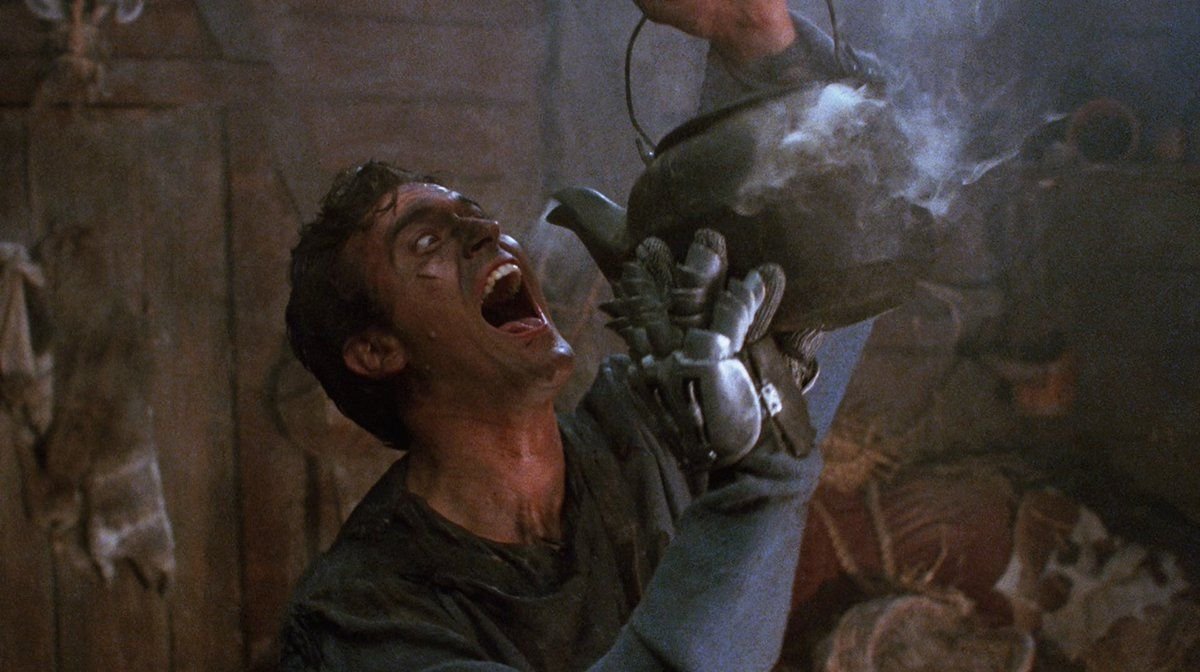
Suddenly, Ash obtains the cocky confidence of a hero, gets worshipped like a god, and demands that his subordinates do everything they can to send him back to the future.
Of course, this plan doesn't work out, largely due to him being a "slow thinker". Told that he will discover his salvation through finding the Necronomicon, Ash is given a phrase to say before picking the book up - something he doesn't pay attention to, with inevitably horrible results.
An army of the dead follows him back to the castle and war breaks out. Somehow he manages to stumble into victory and is given the potion that will allow him to return to the present, leaving the Middle Ages as a hero who managed to defeat the Deadites.
An Accidental Hero?
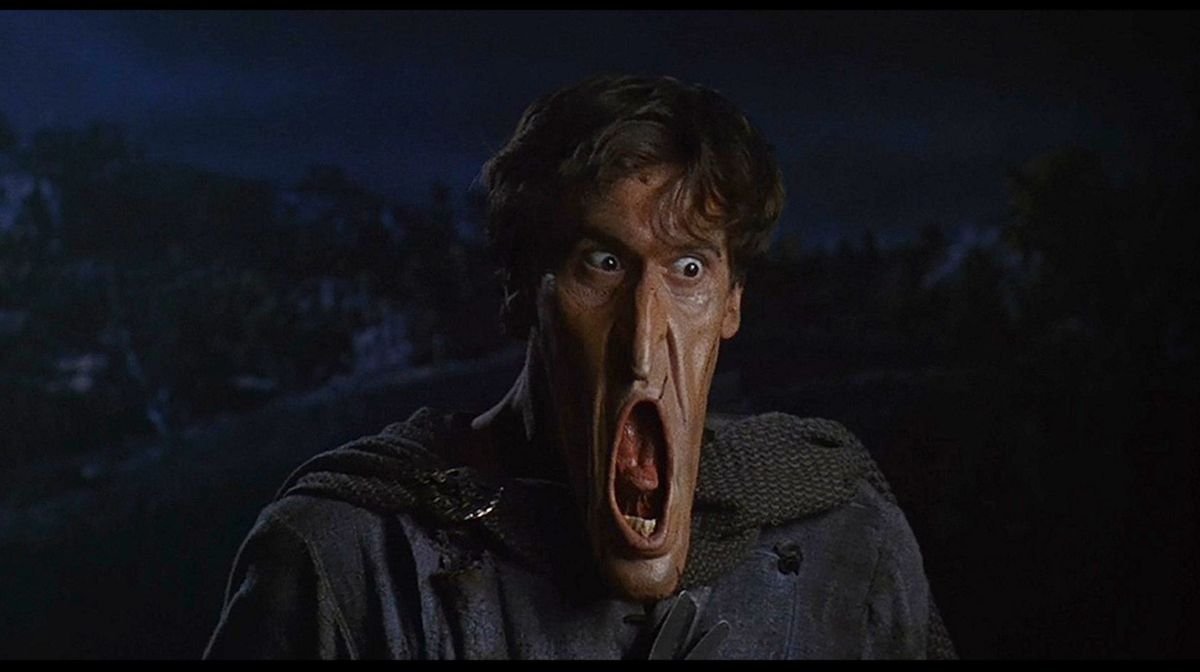
However, in typical Ash style he arrives back in the present having said the phrase wrong for a second time, leading to a Deadite to arise in the department store where he works.
But now, he's more than ready to take it on, having embraced the idea of being a hero: he grabs a rifle, takes it down, and then passionately kisses his co-worker in the aftermath.
In short, his ascension to conventional movie lead is complete, with the end credits rolling as Ash finally grows into the sort of protagonist he previously only was in his own head.
Which is why the much darker original ending Raimi had planned seems much more fitting as the climax to Ash's journey.
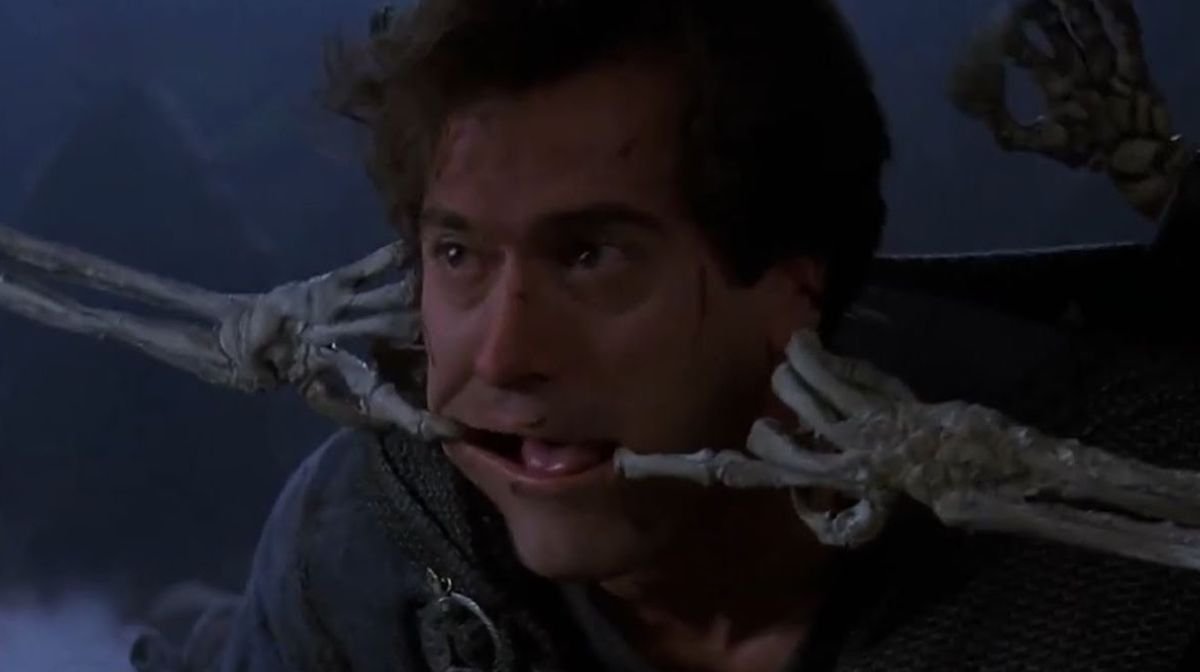
Whereas here he messed up the given phrase, in that original version he took seven drops of the potion instead of six - waking up in a post-apocalyptic London, where human civilisation has been destroyed.
Universal Pictures objected to the "depressing" nature of the climax, even though it fitted in comfortably with the concept of Ash as a man who never thinks too much about the consequences of his actions.
Any heroic moment is short-lived, as he's bound to mess up again minutes later - throwing Ash into a world where he has to fight for survival like never before would be the ultimate test of his new found hero status.
It may have been a comparatively bleaker ending, but it would have been a fantastic set-up for a fourth Evil Dead movie, which would only go further in transforming Ash from an everyman into a genuine hero.
Shop our Evil Dead merch here.
For all things pop culture, follow us on Facebook, Instagram, Twitter, and TikTok.

